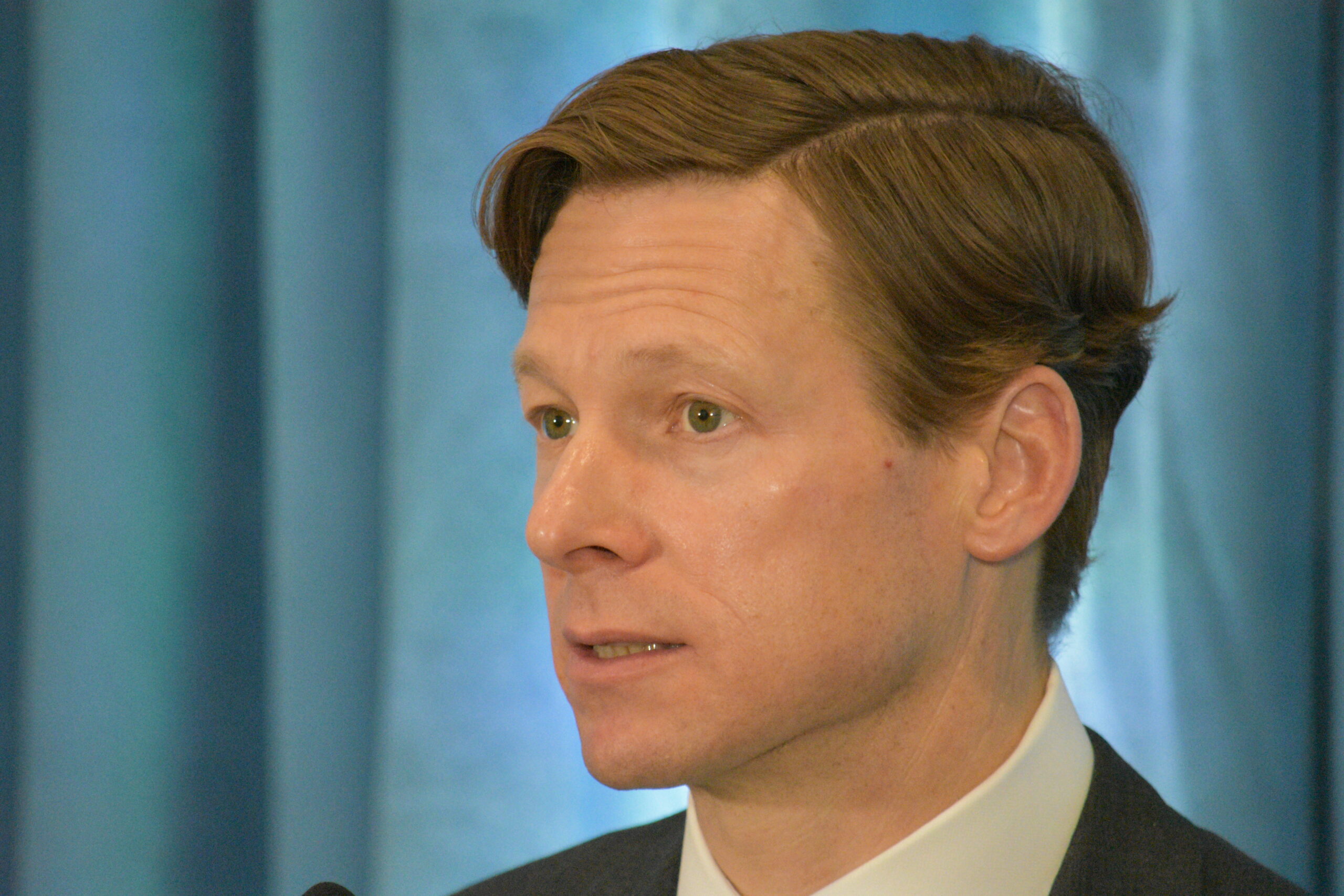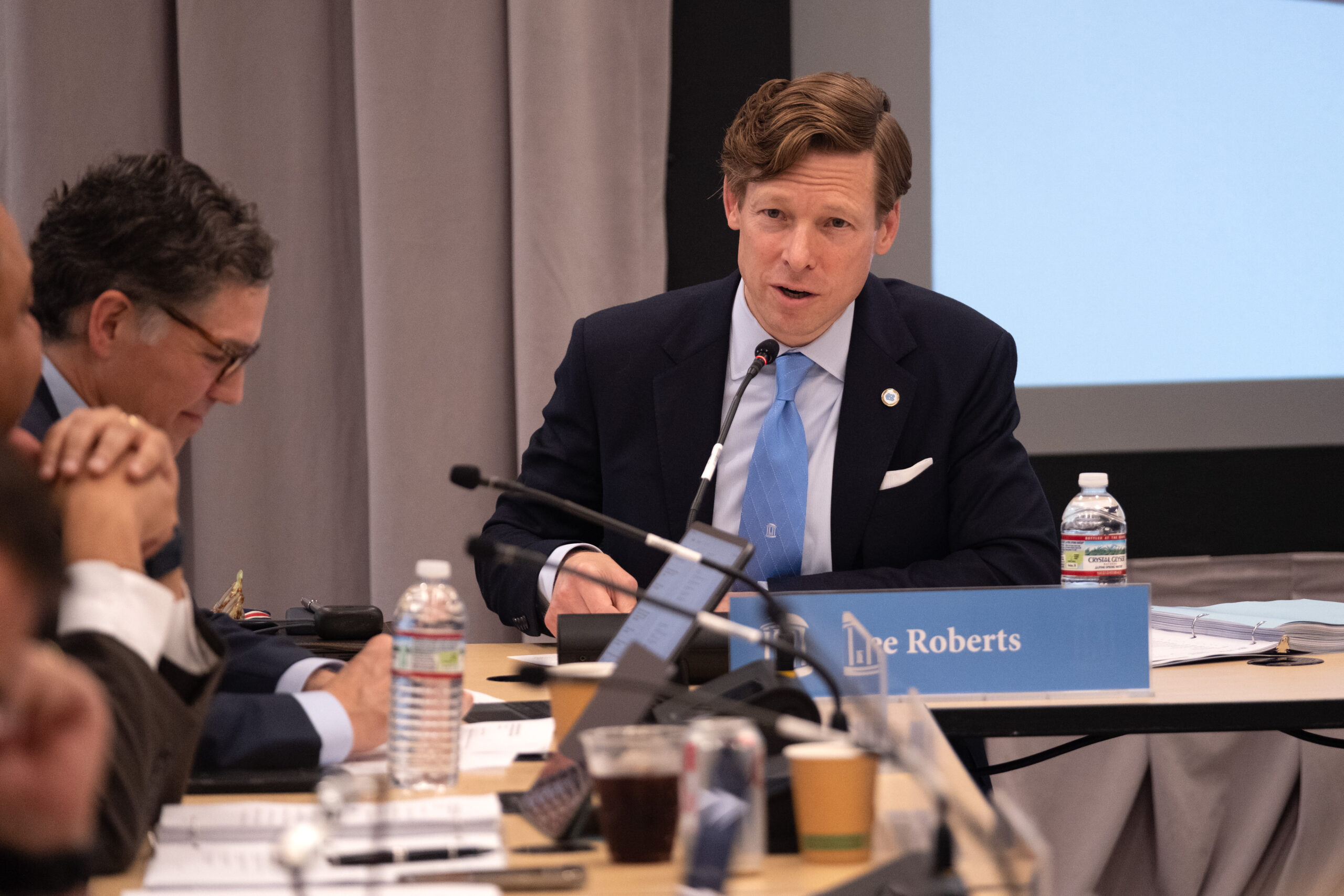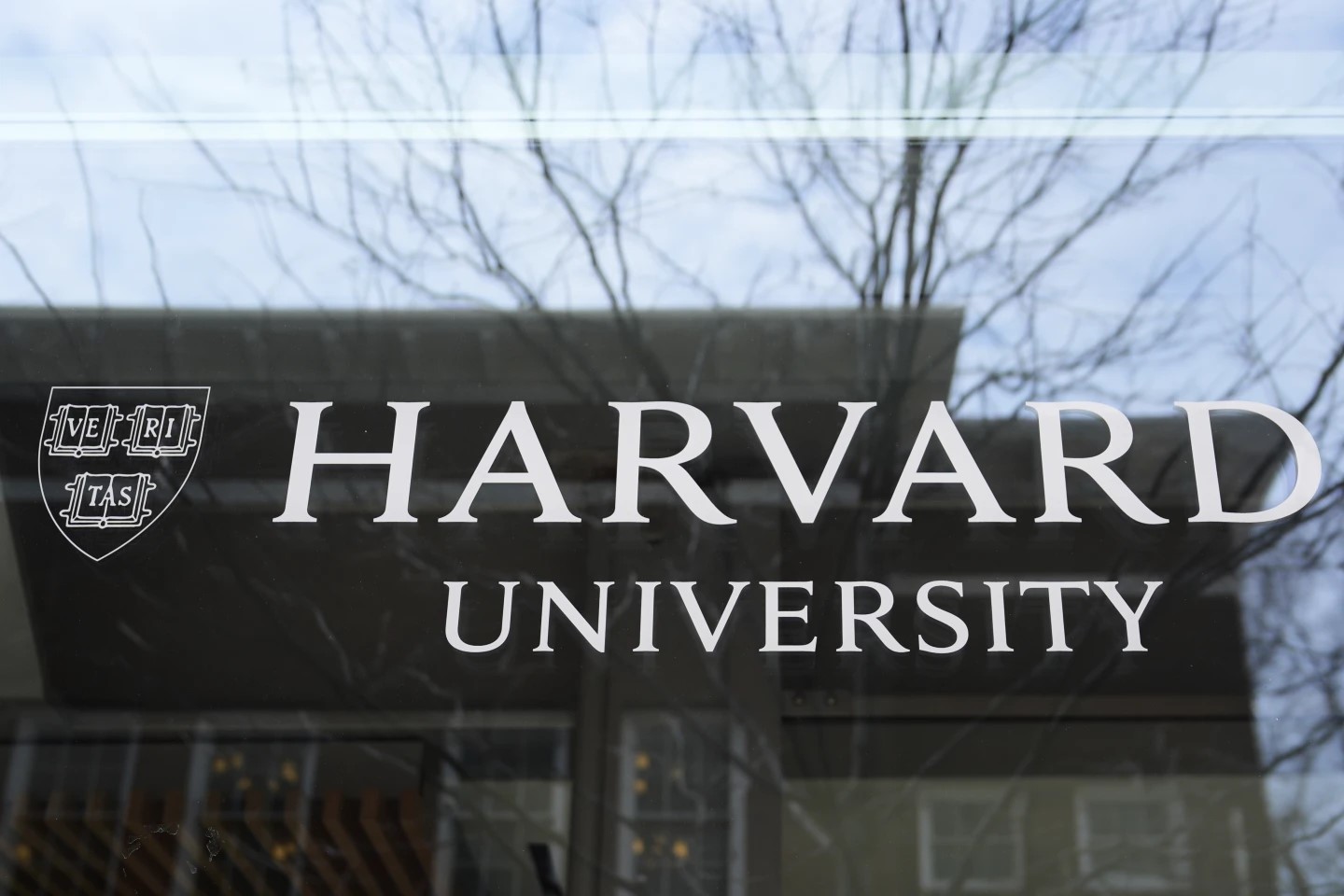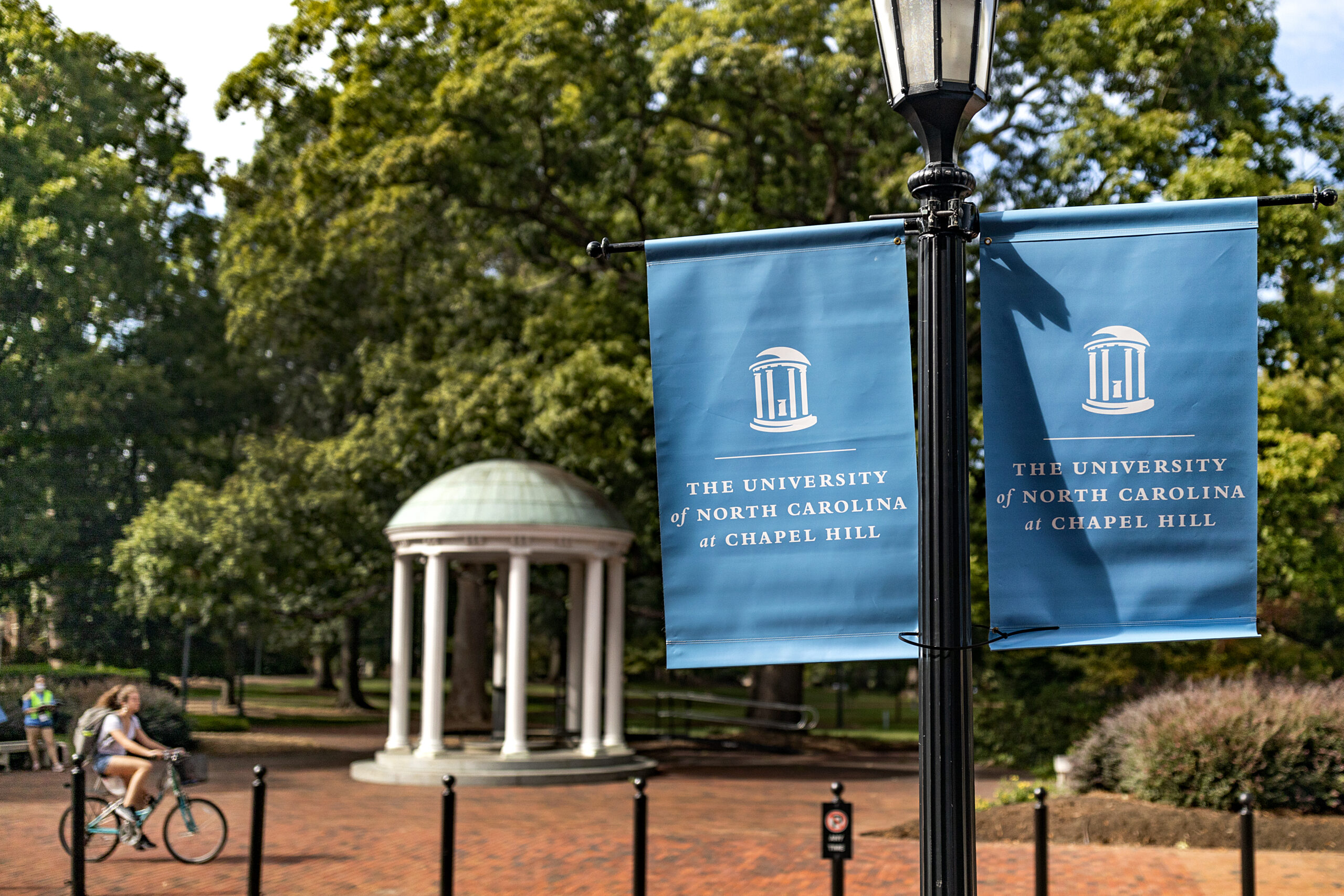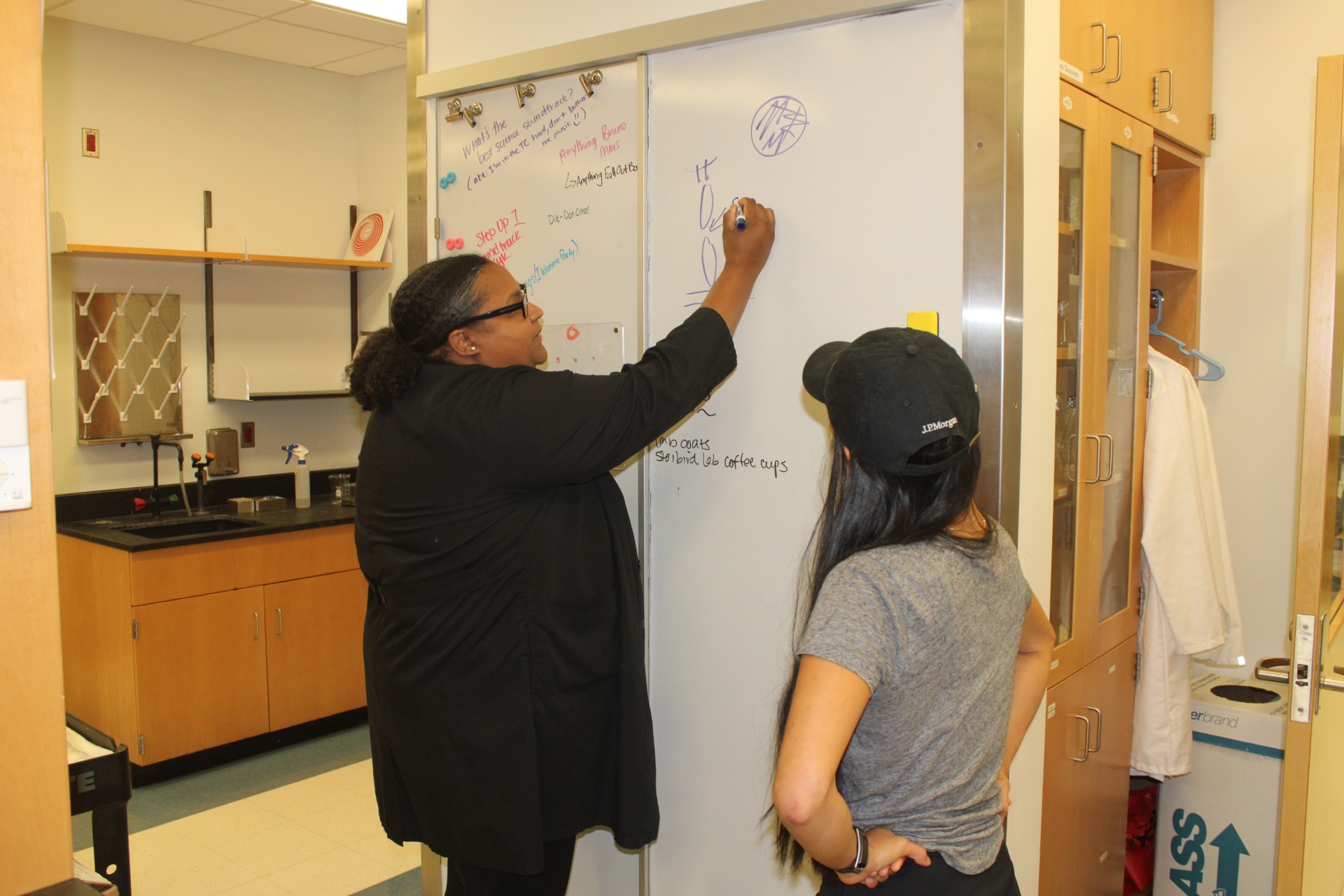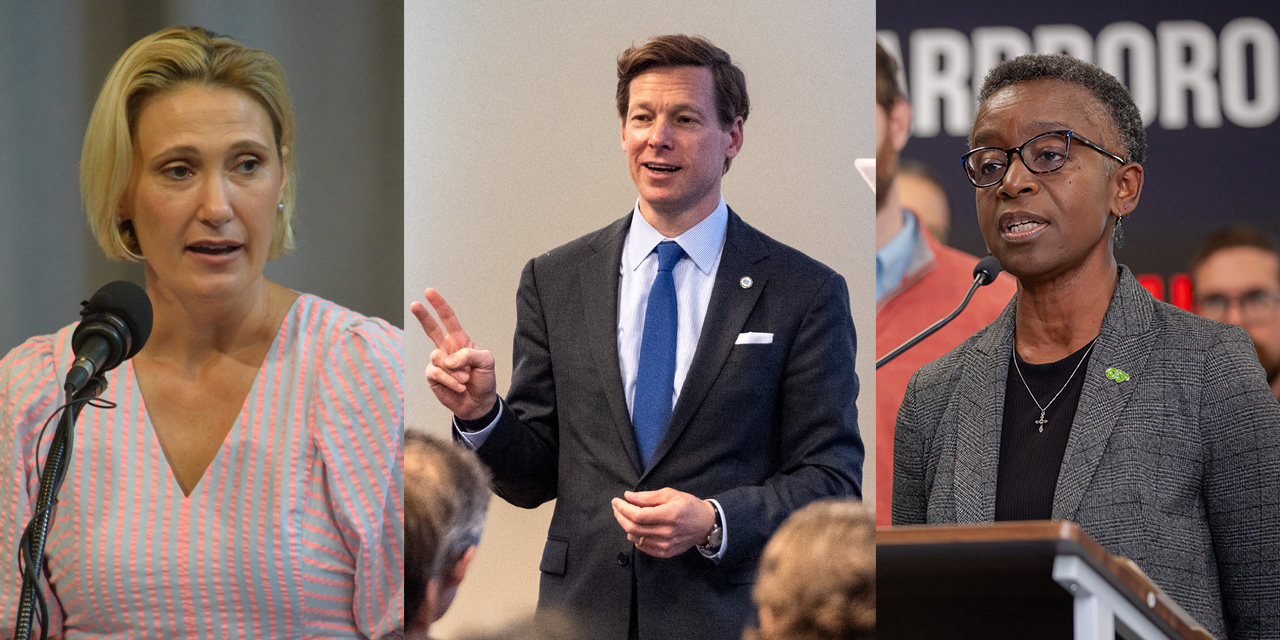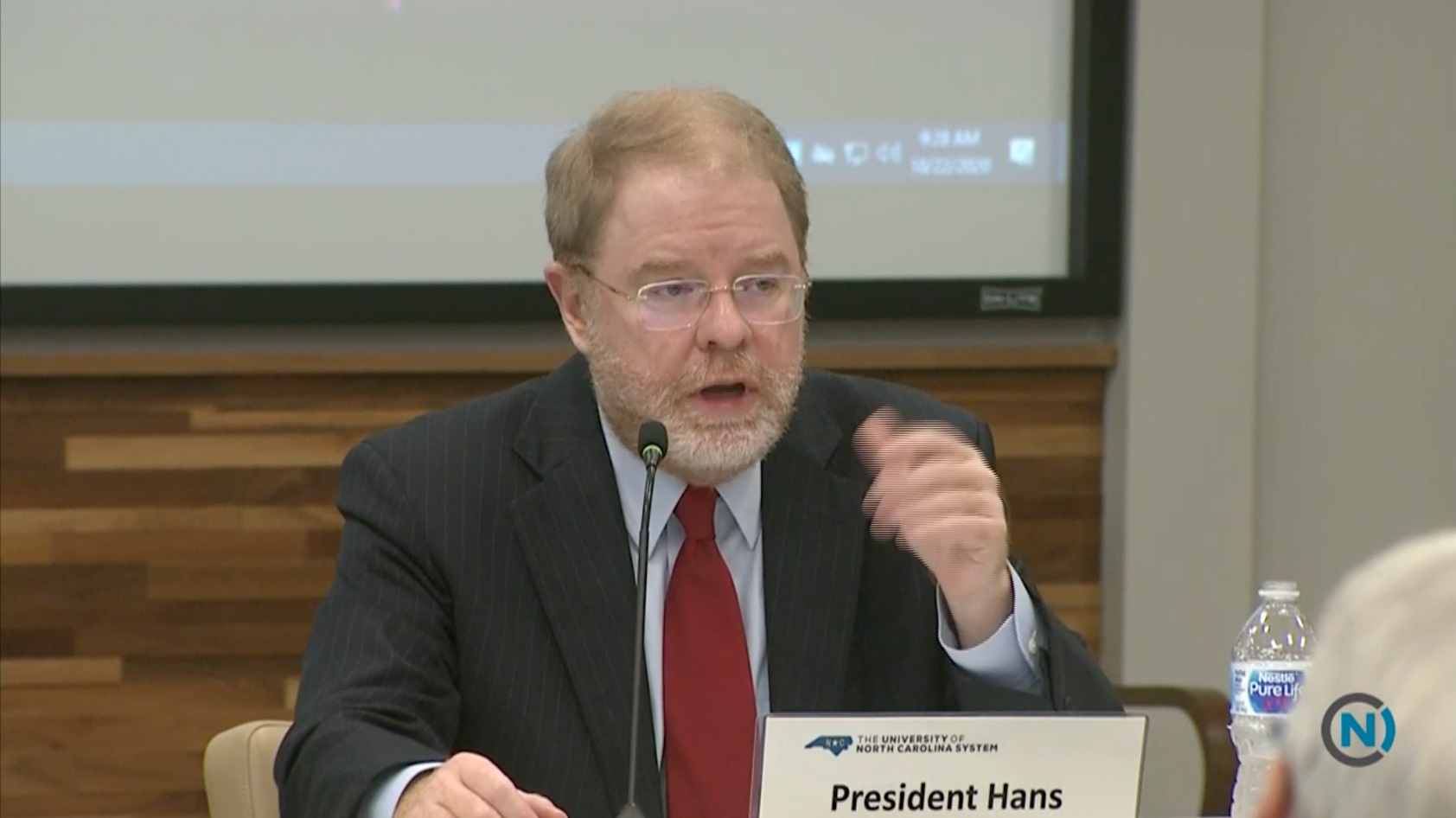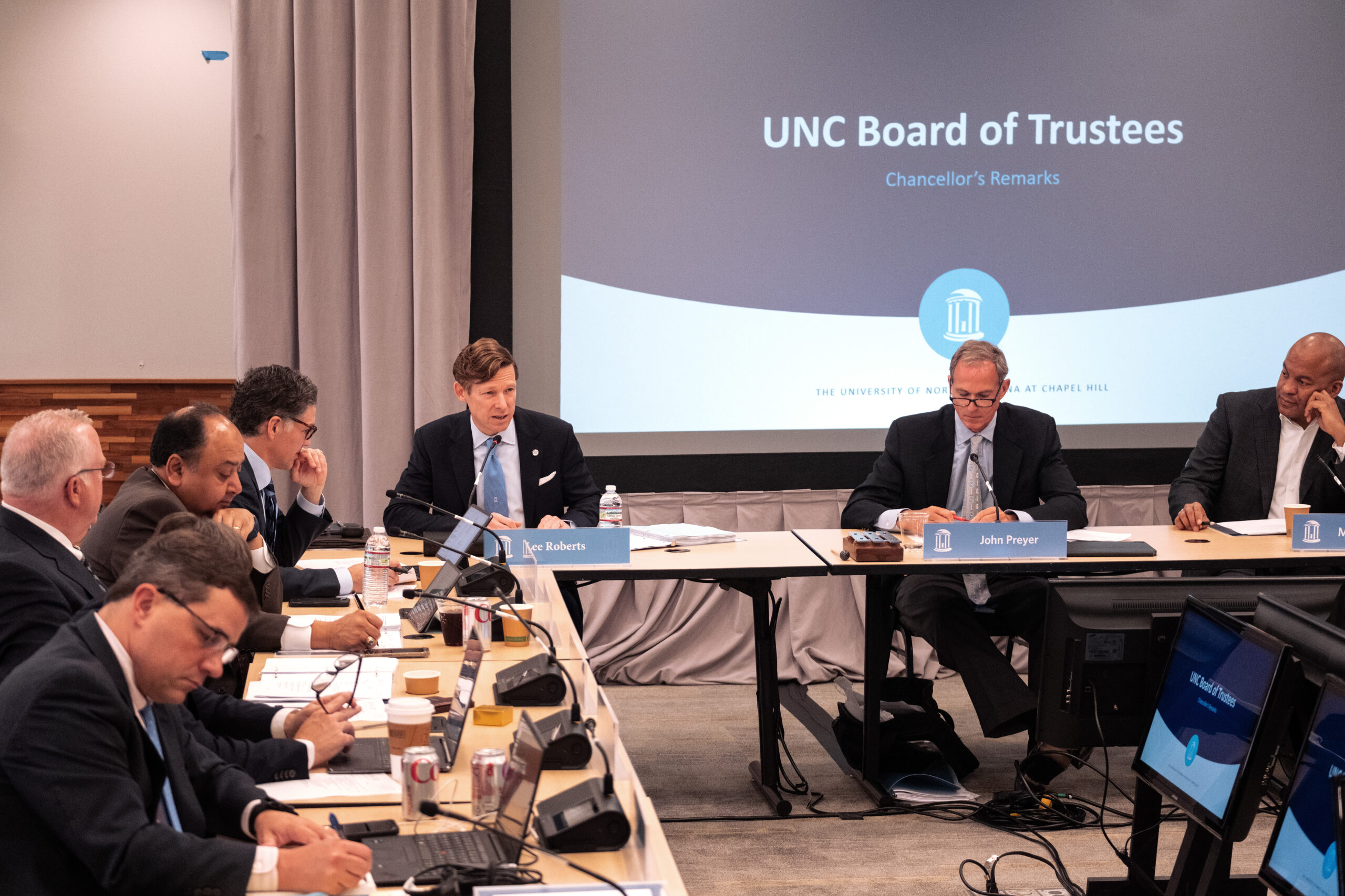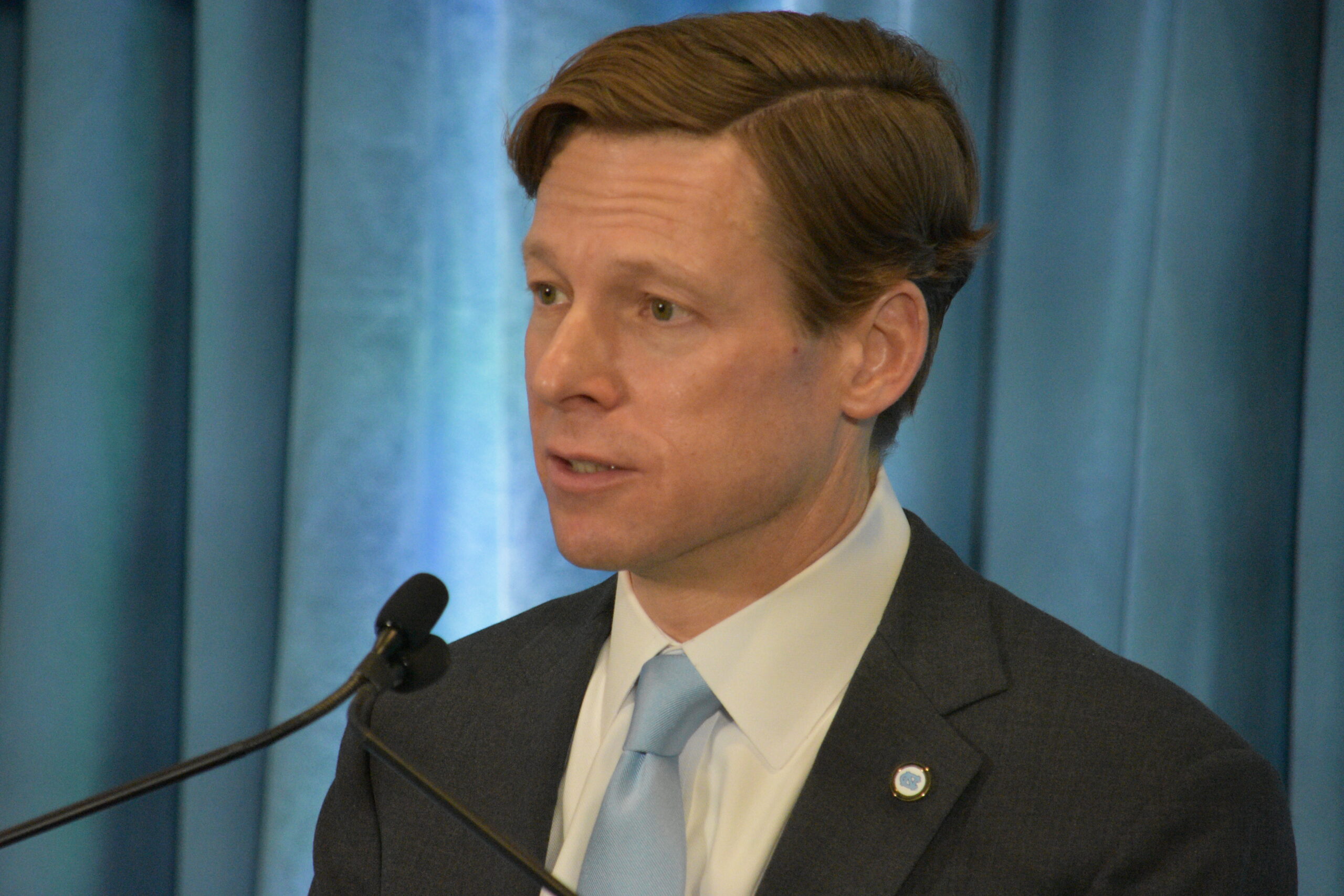UNC Chancellor Lee Roberts told faculty leaders the university does not plan on signing President Donald Trump’s administration’s “Compact for Academic Excellence in Higher Education” in exchange for favorable consideration of federal funding.
During his scheduled comments at the UNC Faculty Council meeting, Roberts told faculty “nobody” has asked the university’s leadership to sign the compact and described it, in his mind, as a settled issue.
“We were not one of the universities who received the letter from the administration,” he said, acknowledging that schools could also voluntarily sign the agreement. “What we’ve said before publicly…and I’ve also relayed it to senior federal policymakers: there are some parts of the compact that we’re already doing, and there are some parts of the compact that would be difficult or impossible for us to do. So, there’s really no way that we can sign the compact as written and we don’t plan to.”
Roberts — who said early in his comments he’d recently spent time in Washington D.C. on the university’s behalf — also clarified he had not heard any discussion of the UNC System receiving a request from the White House and was not sure whether it would be determined on a system-wide basis or campus-by-campus if it came to that.
“I don’t perceive a continued effort by the administration to try to get schools to sign onto the compact,” Roberts added. “My sense of it — and it’s just one perspective — is that [the White House] sent out the letter to the initial group of nine schools…none of those school signed on, some of them responded saying they couldn’t. And then [the administration] said any other schools are welcome to sign on. I’ve heard of three other schools that have done that. I don’t think any of them are schools we’d consider in our peer set… other [American Association of Universities] schools, other R1s [the top research classification by Carnegie], whatever metric you want to use. And that’s the last I’ve heard about the compact.”
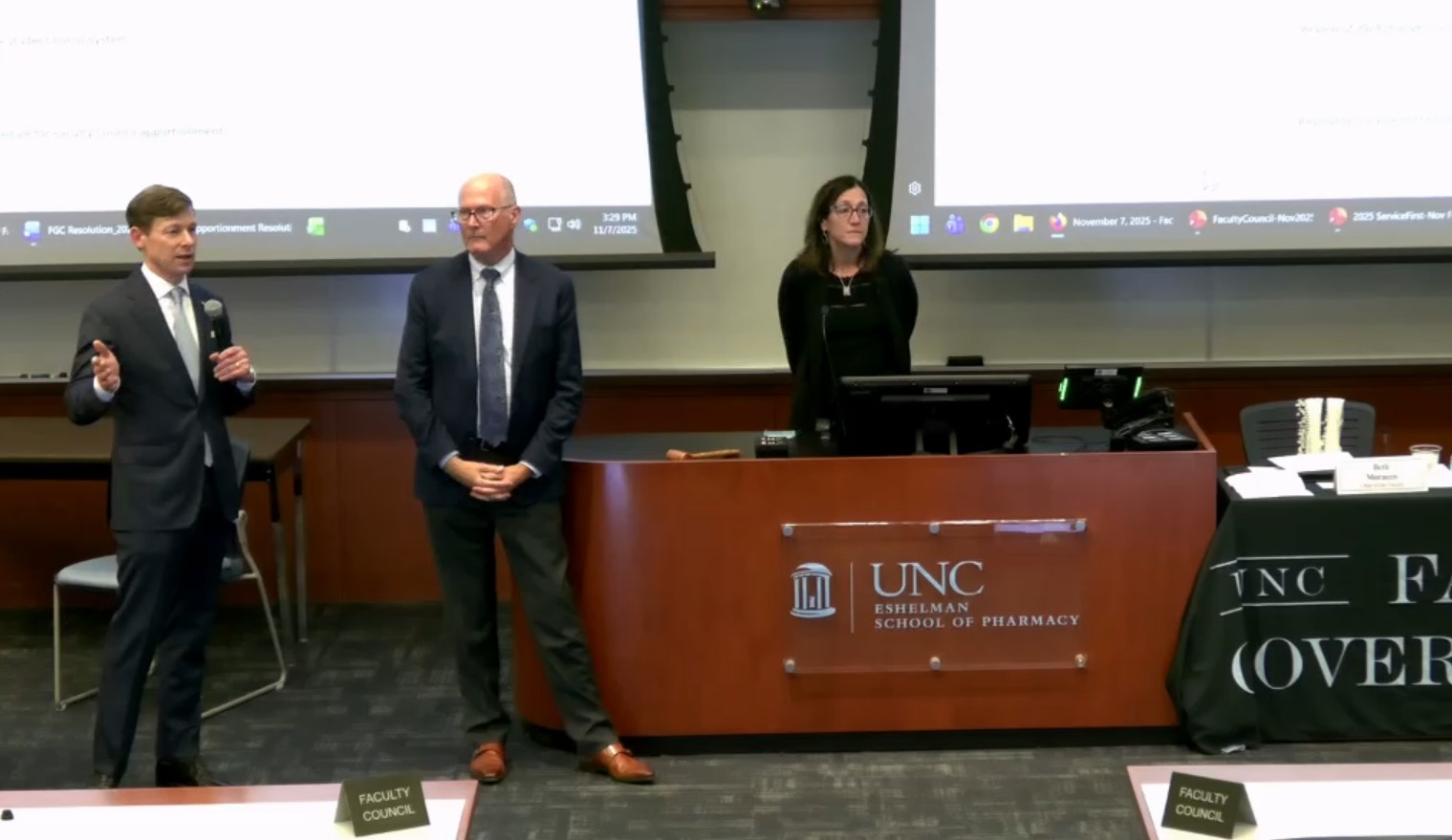
UNC Chancellor Lee Roberts (far left) takes questions during the UNC Faculty Council meeting alongside Interim Provost Jim Dean (second to left) on Friday, Nov. 7. Chair of the Faculty Beth Moracco (second from right) listens. (Photo via UNC Faculty Council/Panopto.)
The Compact for Academic Excellence in Higher Education was unveiled in October following the Trump administration’s negotiations with Columbia University over the summer, with the agreement outlining how schools would be granted more research funding to schools for agreeing to follow or support his political agenda. Among the items it would require is for universities to stop using a range of student demographics in their admissions process, apply the government’s definition of gender to campus bathrooms, locker rooms and women’s sports programs, and cap international student enrollment at 15% of schools’ undergraduate bodies.
The initial schools who received the letter, according to the Associated Press were: Vanderbilt, the University of Pennsylvania, Dartmouth College, the University of Southern California, the Massachusetts Institute of Technology, the University of Texas, the University of Arizona, Brown University and the University of Virginia.
The chancellor’s statement came after separate advocacy efforts arose to urge UNC against signing the compact. The student-led climate justice group Sunrise UNC led a demonstration Friday afternoon at the steps of South Building to protest the Trump administration’s efforts to influence higher education. The organization Coalition for Carolina — which advocates for less government influence on higher education — also created a petition that garnered more than 1,700 signatures urging Roberts and UNC System President Peter Hans to not sign the compact. The coalition said it delivered the document to UNC leaders on Thursday.
During his comments at Friday’s faculty council meeting, Roberts also said it appeared the federal government’s ongoing shutdown had not impacted UNC’s federal funding more than it already had by the Trump administration’s cancellation of grants.
“I was speaking with [Vice Chancellor for Research] Penny Gordon Larsen immediately before this meeting and she had the same numbers for terminated grants that I gave you last [month],” the chancellor said. “In some ways, that’s good news that we haven’t seen more terminations. As I said before: still devastating for the teams affected, the researchers directly affected. But that number was 111 grants terminated, $38 million, about 3.5% of our average annual federal research funding.”
Video footage of the full UNC Faculty Council meeting from Friday, Nov. 7 can be watched here.
Featured photo by Brighton McConnell/Chapel Hill Media Group.
Chapelboro.com does not charge subscription fees, and you can directly support our efforts in local journalism here. Want more of what you see on Chapelboro? Let us bring free local news and community information to you by signing up for our newsletter.

